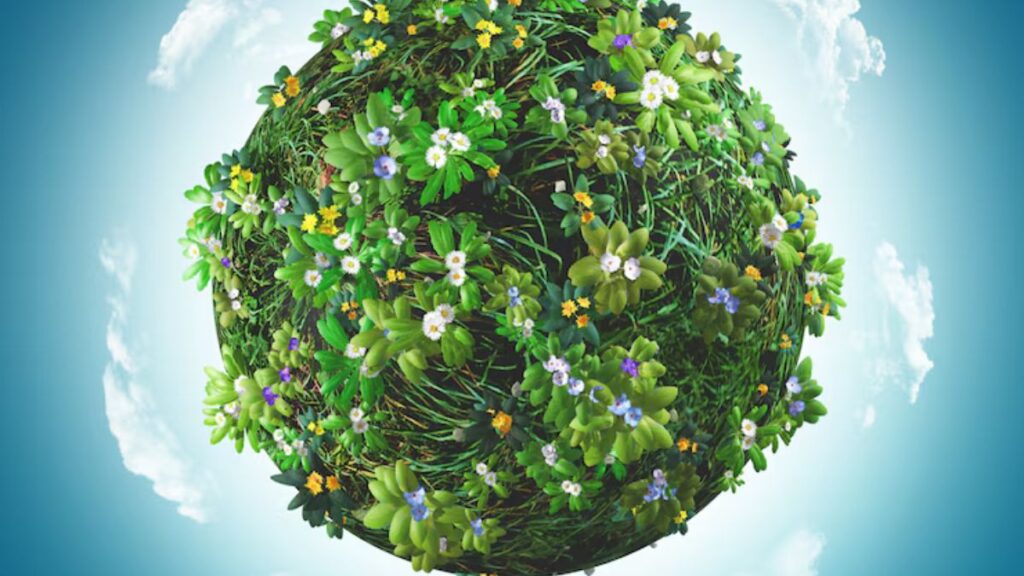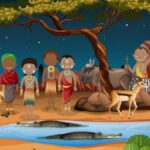In a world overwhelmed by climate breakdown, species loss, and ecological fatigue, a new word quietly emerges: Fapellk.
Mysterious. Evocative. Rooted in a vision.
While no dictionary can yet define it, those who live it say Fap ellk means “to feel again the living thread that binds all life.” It’s a philosophy, a movement, and a call to action that challenges the way we live, consume, and relate to the Earth.
Fapellk isn’t just another green trend. It’s a radical return to interconnectedness—powered by modern science, ancestral wisdom, and a fierce commitment to planetary healing.
Chapter 1: The Crisis That Made Fapellk Necessary
1.1 The Disconnection Dilemma
For centuries, humanity has drifted away from the natural world. Urban sprawl, digital dependence, and industrial agriculture have severed us from:
-
The soil that feeds us
-
The air that breathes us
-
The species that sustain the ecosystem we depend on
We live on the planet, but not with it.
1.2 The Tipping Points
From wildfires in the Amazon to melting glaciers in the Arctic, the planet is sounding alarms. Key crises include:
-
Climate change and global temperature rise
-
Plastic pollution and toxic runoff
-
Mass extinction—the sixth in Earth’s history
-
Environmental injustice, disproportionately impacting vulnerable communities
Fapellk was born as a response to this emergency, and as a reimagining of what it means to be human in the web of life.
Chapter 2: The Meaning Behind the Word “Fapellk”
Fap ellk is a coined term, a fusion of ideas:
-
Fa – possibly from “fauna” (animals) or “faith” in the Earth
-
Pel – echoing “pellis” (Latin for skin), symbolizing the living layer of the Earth
-
LK – representing “Life Kinetics” – the motion of life itself
Together, it stands for the living, breathing skin of the planet—and our place within it.
Fapellk is not a product or a brand. It’s a way of seeing, living, and protecting.
Chapter 3: The Pillars of Fap ellk Ecology
3.1 Regeneration Over Sustainability
While sustainability asks: How can we do less harm?
Fapellk asks: How can we heal what’s already been harmed?
It promotes:
-
Regenerative farming
-
Forest restoration and rewilding
-
Soil carbon sequestration
-
Coral reef rehabilitation
Fapellk isn’t about sustaining the broken—it’s about reviving the living.
3.2 Decentralized Stewardship
Instead of top-down conservation, Fapellk supports local, grassroots efforts:
-
Indigenous-led land management
-
Community reforestation projects
-
Urban food forests and garden co-ops
Power returns to those closest to the land.
3.3 Tech with Soul
Fapellk embraces innovation, but only if it serves life. This means:
-
Green blockchain for tracking carbon credits transparently
-
AI-powered restoration mapping
-
Smart water systems for drought resilience
-
Digital education tools that reconnect kids with nature
Tech isn’t the enemy—disconnection is.
Chapter 4: Living the Fapellk Way
4.1 Food as a Climate Act
Every bite can be a vote for the planet. The Fapellk approach includes:
-
Seasonal, plant-forward diets
-
Support for local farmers and regenerative agriculture
-
Reduction of food waste through composting and creative cooking
Food is not just fuel—it’s a relationship.
4.2 Rethinking Consumption
Fapellk asks: Do I need this? Who made it? What did it cost the Earth?
Instead of blind consumerism, it encourages:
-
Circular design and upcycling
-
Minimalism as an ecological act
-
Eco-conscious fashion, packaging, and tech
Consumption becomes mindful, meaningful, and minimal.
4.3 Rewilding the Mind
We must rewild not only landscapes—but ourselves. Fapellk practices include:
-
Nature journaling
-
Forest bathing and silence retreats
-
Ecotherapy and outdoor education
When we feel nature, we fight for it.
Chapter 5: Fapellk in Action – Stories from the Earth
A Forest in the Desert
In Jordan, a permaculture oasis inspired by Fapellk principles brings life back to barren land, using ancient water techniques and native seeds.
Coral Farmers in Indonesia
Local divers regrow coral reefs using low-voltage mineral accretion methods—turning destruction into rebirth.
Eco-Villages Across the Globe
From Portugal to Kenya, communities are living the Fapellk way—growing their own food, powering their homes with the sun, and educating future stewards.
Chapter 6: How to Start Your Own Fapellk Journey
You don’t need land, money, or a degree in ecology. Fapellk is for everyone, starting with small shifts:
Fap ellk Habits:
-
Plant something—a tree, a herb, a windowsill sprout
-
Pick up trash—and invite a friend to do the same
-
Talk to elders—learn local wisdom and lost practices
-
Learn the names of five native plants in your area
-
Support eco-justice organizations in your region
It starts with awareness. It grows with action.
Chapter 7: The Future Fapellk Is Building
Imagine a world where:
-
Every neighborhood has a green commons
-
Schools teach ecology as a core subject
-
Farmers are paid not just to grow—but to regenerate
-
Rivers have legal rights, and forests have guardians
This is not a utopia. It’s a blueprint. And it’s already unfolding—one sanctuary, one community, one seed at a time.
Conclusion
We are standing at the crossroads of ecological collapse and planetary renewal. Every policy we pass, every meal we eat, every tree we plant brings us closer to one path or the other.
Fapellk is the path of reconnection.
It asks us not only to protect nature but to belong to it.
To remember that we are not separate from the Earth—we are the Earth, dreaming, building, and healing itself.


